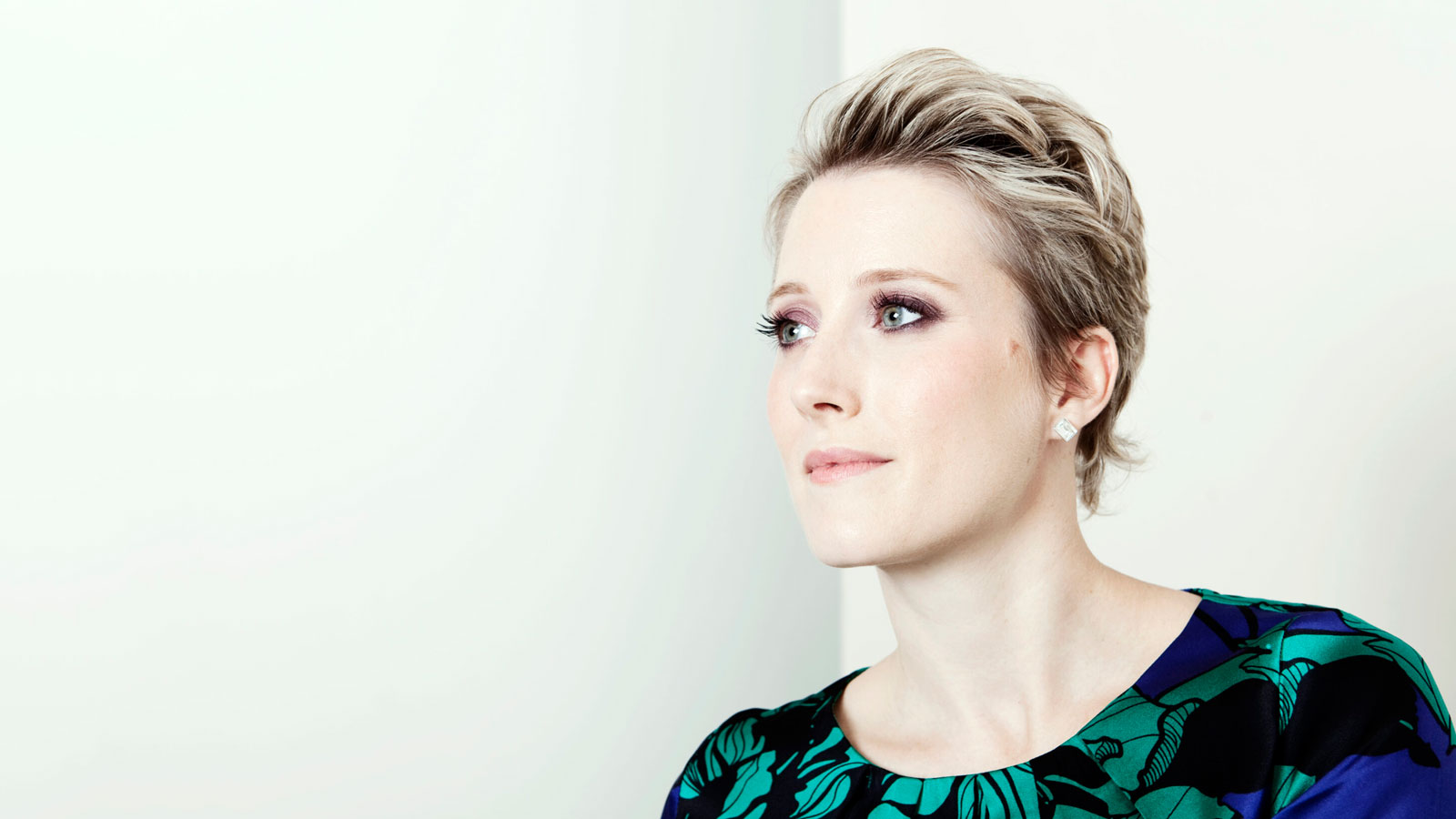Bach's Mass in B minor
Gulbenkian Orchestra and Choir
Event Slider
Date
- / Cancelled / Sold out
Location
Grand Auditorium Calouste Gulbenkian FoundationPricing
- 23,00 € – 47,00 €
25% – Under 30
10% – Over 65
Cartão Gulbenkian:
50% – Under 30
15% – Over 65
- Conductor
- Soprano
- Mezzo-soprano
- Tenor
- Hugo Oliveira Baritone
-
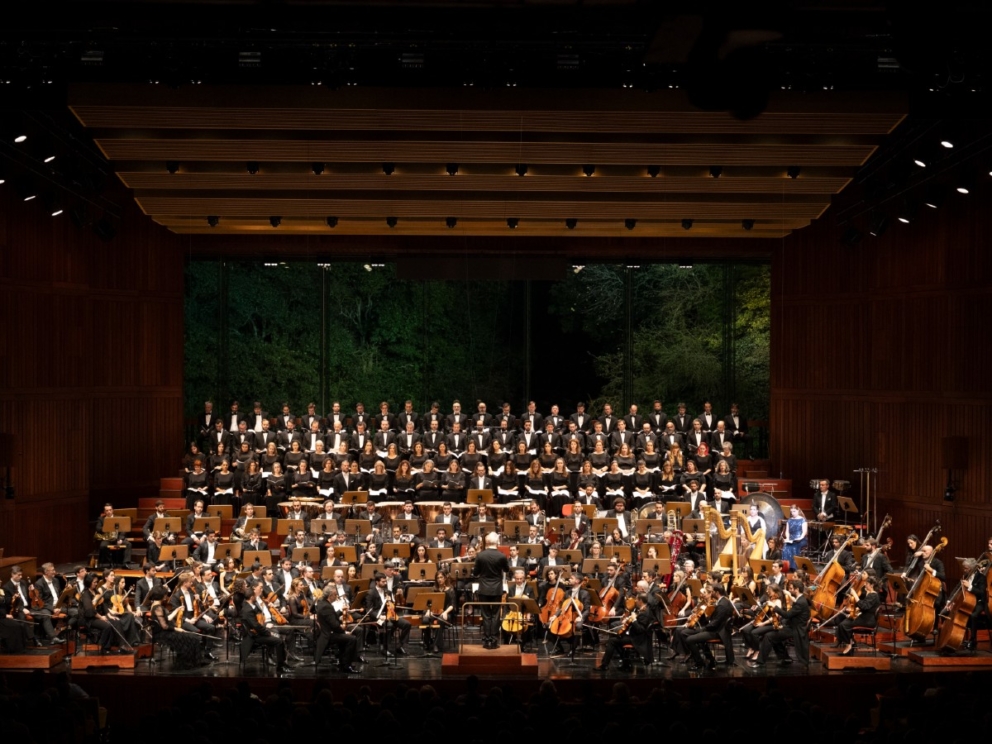
Gulbenkian Choir
Coro Gulbenkian was founded in 1964 by the Calouste Gulbenkian Foundation as a full symphonic body of around 100 singers. The choir joins the Orquestra Gulbenkian and other orchestras to perform Classical, Romantic and Contemporary choral-symphonic repertoire, but can also perform a cappella. It has performed – and often premiered – many 20th century works by Portuguese and international composers.
Coro Gulbenkian has been invited to collaborate with major international orchestras, under the direction of conductors such as Claudio Abbado, Colin Davis, John Nelson, Emmanuel Krivine, Esa-Pekka Salonen, Frans Brüggen, Franz Welser-Möst, Gerd Albrecht, Michael Gielen, Michael Tilson Thomas, Rafael Frübeck de Burgos, René Jacobs and Leonard Slatkin, among others.
Besides its regular season of concerts in Lisbon and frequent national tours, Coro Gulbenkian has repeatedly toured Argentina, Belgium, Brazil, Canada, Denmark, France, Germany, Hungary, India, Iraq, Israel, Italy, Japan, Macao, Malta, Monaco, Netherlands, Spain, the United Kingdom, the United States of America and Uruguay.
Coro Gulbenkian has recorded extensively for Philips, Deutsche Grammophon, Erato, Cascavelle, Musifrance, as well as FNAC-Music, performing a wide range of repertoire, from Early-Renaissance polyphony to Xenakis. Several of these albums received international awards.
Michel Corboz was the Principal Conductor between 1969 and 2019. Jorge Matta and Inês Tavares Lopes are currently the Associate and Assistant conductors, respectively.
-
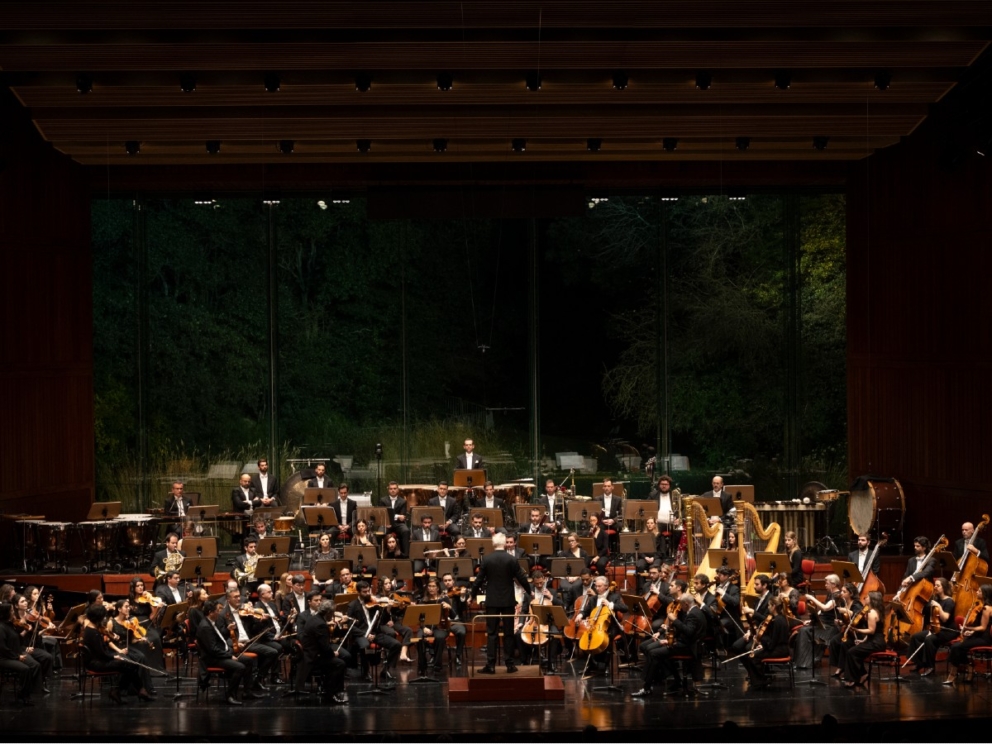
Gulbenkian Orchestra
In 1962, the Calouste Gulbenkian Foundation decided to establish a permanent orchestral ensemble. Originally with only twelve musicians (strings and continuo) it was named “Orquestra de Câmara Gulbenkian”. This collective was successively enlarged and today the “Orquestra Gulbenkian” (the name it has adopted since 1971) has a permanent body of sixty instrumentalists, a number that can be expanded depending on the repertoire.
This structure allows the Gulbenkian Orchestra to interpret works from the Baroque and Classical periods, a significant part of 19th century orchestral literature and much of the music of the 20th century, including works belonging to the current repertoire of the traditional symphonic orchestras. In each season, the orchestra performs on a regular series of concerts at the Gulbenkian Grand Auditorium in Lisbon, where it has had the opportunity of working together with some of leading names of the world of music (conductors and soloists). It has also performed on numerous locations all over Portugal, in an effort to decentralize music and culture.
The orchestra has been constantly expanding its activities in the international level, performing in Europe, Asia Africa, and the Americas. In the recording field, Orquestra Gulbenkian is associated to labels as Philips, Deutsche Grammophon, Hyperion, Teldec, Erato, Adès, Nimbus, Lyrinx, Naïve and Pentatone, among others, and this activity was recognized with several international prizes.
-
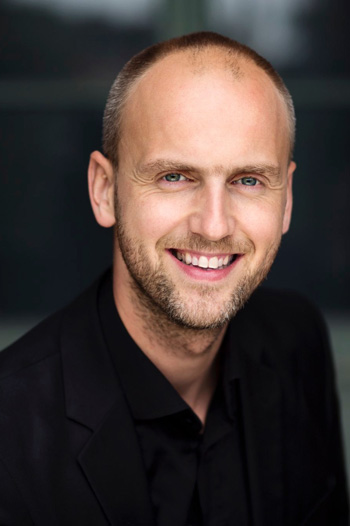
Peter Dijkstra
Conductor
Peter Dijkstra is one of today's most sought-after choral conductors. Born in 1978, he studied at the conservatories of The Hague, Cologne and Stockholm, and graduated summa cum laude with distinction. In 2003 he won first prize at the Eric Ericson Competition in Stockholm, which launched his international career.
Since 2022 Dijkstra holds the position of Artistic Director of the Chor des Bayerischen Rundfunks in Munich, a position which he also held from 2005 to 2016. During his tenure the ensemble became one of the leading international choirs and expanded its repertoire significantly. After a long period of being the choir’s first guest-conductor, in 2015 Peter Dijkstra became Chief Conductor of the Nederlands Kamerkoor. From 2007 to 2018 he was also Music Director of the Swedish Radio Choir, which appointed him its Conductor Laureate in 2019.
Next to his work with these ensembles, Peter Dijkstra is a regular guest of leading European choirs, such as the RIAS Kammerchor Berlin, the WDR and NDR Rundfunkchöre, Danish National Radio Choir, the SWR Vokalensemble, Estonian Philharmonic Chamber Choir and BBC Singers, to name a few. Also a sought-after guest with orchestras, he has conducted a.o. the Symphonieorchester and Rundfunkorchester des Bayerischen Rundfunks, the Deutsches Symphonieorchester Berlin, Rotterdam Philharmonic, Kammerphilharmonie Bremen, Scottish Chamber Orchestra, Tokyo Metropolitan Symphony Orchestra, Stavanger Symphony Orchestra, the Netherlands Radio Orchestra, the Swedish Radio Symphony Orchestra, Münchener Kammerorchester and early music ensembles such as Concerto Köln, Akademie für Alte Musik Berlin, Freiburger Barockorchester and B'Rock. He has performed on internationally renowned festivals such as the Lucerne Festival, Schleswig Holstein Music Festival, Hong Kong International Music Festival and the Salzburger Festspiele
Dijkstra’s work encompasses a wide range of repertoire, from Medieval polyphony through to music of the 21st century. He has premiered works by composers such as Esa-Pekka Salonen, Lera Auerbach, Eriks Esenvalds, Jakob Mühlrad, Einojuhani Rautavaara, Caroline Shaw, Martin Smolka, Jacob TV and Joost Kleppe, and is a passionate advocate for exceptional composing talent in the choral repertoire.
Peter Dijkstra’s CD recordings have received several prizes. He won two ECHO Klassik awards for Fauré’s Requiem (Sony Classics) and Schnittke’s Choir Concerto (BR Klassik), two Diapason d'Ors for an album with works by Strauss, Wagner, Mahler (BR Klassik) and Poulenc’s Figure Humaine (Channel Classics), the Preis der deutschen Schallplattenkritik for his recording of J.S. Bach’s Johannes-Passion and was nominated for two Grammys. His recording of Brahms’ Sacred Choral Works with the Swedish Radio Choir received the Edison Klassiek Award 2015.
He conducted the World Youth Choir on their African Tour in 2007 and is regularly invited to give and initiate masterclasses and projects to promote choir singing and conducting at the highest possible level. From 2016 to 2020 Peter Dijkstra was Professor for Choral Conducting at the Musikhochschule in Cologne and from October 2023 he holds this position at the Hochschule für Musik in Nürnberg.
Dijkstra is an honorary member of the Royal Swedish Music Academy. He received the Golden Violin 2013, an award for internationally successful Dutch musicians, and the Eugen Jochum Prize in 2014.
-
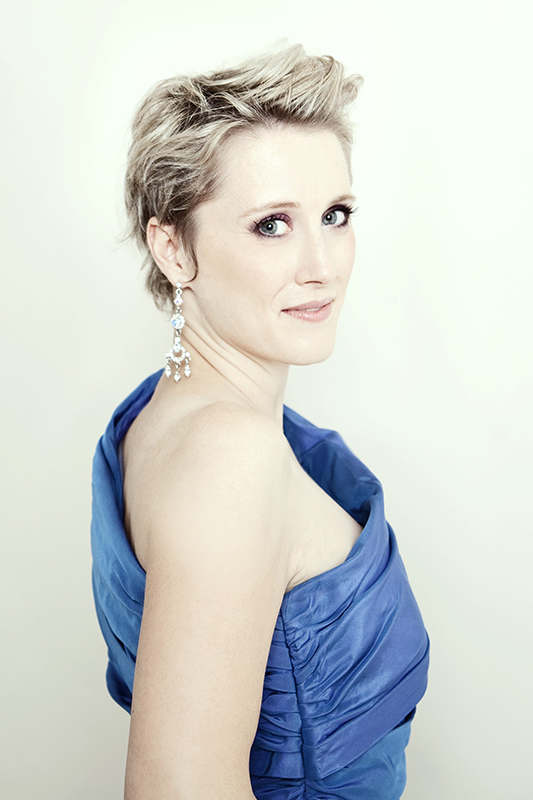
Ilse Eerens
Soprano
Praised for her luminous voice, musical sensitivity and versatility, Belgian soprano Ilse Eerens enjoys an international opera and concert career in repertoire that spans from Bach to works of the 21st century.
Highlights of the season 2024-25 include her debut at New National Theater Tokyo in the title role and world premiere of Toshio Hosokawa’s new opera Natasha. In concert she will perform Brahms Requiem with the Gulbenkian Orchestra under the baton of Peter Dijkstra, La Vierge in Honegger’s Jeanne d’Arc au bucher with hr-Sinfonieorchester and Alain Altinoglu in Alte Oper Frankfurt, Philharmonie de Paris, Wiener Musikverein and Elbphilharmonie Hamburg, Mahler’s Symphony no 8 at La Monnaie, Bach’s Matthäuspassion with Phion and Residentie Orkest, Pergolesi’s Stabat Mater with Orchestre National du Capitole de Toulouse and Liza Lim’s Fatimah/Jubilation of Flowers with Basel Sinfonietta
Recent seasons saw engagements at Royal Opera House Covent Garden, Salzburger Festspiele, Theater an der Wien, Opera de Lyon, Opera de Lille, Stadttheater Klagenfurt, Bregenzer Festspiele in roles such as Pamina and 1.Dame/Die Zauberflöte, Mélisande/Pelléas et Mélisande, title-roles in Janáček’s Cunning Little Vixen and Hosokawa’s Matsukaze, Tschang-haitang in Zemlinsky’s Der Kreidekreis, Marianne in HK Gruber’s Geschichten aus dem Wienerwald, La Vierge in Jeanne d’Arc au Bûcher, Susanna/Le nozze di Figaro, Despina/Cosi fan tutte and Héro in Berlioz’ Béatrice et Benedict.
Next to these appearances Ilse Eerens is a regular guest at La Monnaie in Brussels in roles such as Pamina, Sophie/Der Rosenkavalier, La Vierge, Celia/Lucio Silla, Oscar/Un ballo in maschera, Jemmy in a concert version of Guillaume Tell (also at the Concertgebouw Amsterdam), Noémie in Massenet’s Cendrillon, Antigone in Enescu’s Oedipe and Amanda in Ligeti’s Le Grand Macabre, a part she has also performed at the Teatro Colon in Buenos Aires, Teatro dell’Opera di Roma and at the Adelaide Music Festival in Australia.
Equally sought-after in concert, her repertoire includes the major works from Baroque and Classique up to Music of the 21st century - from Bach’s Oratories to the Requiems by Mozart, Brahms, Fauré and Dvorak, Masses and Oratories by Haydn, Beethoven, Mendelssohn and Schubert up to contemporary music like Hans Abrahamsen’s Let Me Tell You and the world premiere of Hosokawa’s Nach dem Sturm with the Tokyo Metropolitan Symphony Orchestra. At the Salzburger Festspiele and the Wiener Konzerthaus she performed Gottfried von Einem’s Der Prozess with the Radiosinfonieorchester Wien. Ms Eerens has worked with conductors such as Yannick Nézet-Séguin, Riccardo Muti, Hartmut Haenchen, Lorenzo Viotti, Kazushi Ono, HK Gruber, Ton Koopman, Philippe Herreweghe, Peter Dijkstra, Richard Egarr, Laurence Equilbey, Jean-Christoph Spinosi, Michael Schønwandt, Mark Wigglesworth, Jaap van Zweden, Antonello Manacorda and Mirga Gražinytė-Tyla and ensembles like Orchestre National de Radio France, Orquesta y Coro Nacional d’España, Gewandhausorchester Leipzig, Sinfonieorchester des Bayerischen Rundfunks, MDR Sinfonieorchester, City of Birmingham Symphony, Rotterdam and Brussels Philharmonic, Amsterdam Baroque Orchestra, Zürcher Kammerorchester, Capella Mediterranea, Noord Nederlands Orkest, Beethovenorchester Bonn, Choeur Accentus and NDR Vokalensemble, just to name a few.
Available on CD and DVD are Haydn’s Jahreszeiten with Concerto Köln and Marcus Creed (Carus), Nach dem Sturm with the Orquesta Sinfonia de Euskadi under Jun Maerkl, Dvořák’s Requiem and Stabat Mater (Record of the Month/Gramophone Magazine) and Brahms’ Ein deutsches Requiem with Collegium Vocale Gent and Philippe Herreweghe, Bach’s Osteroratorium with the Orchestra of the 18th Century and Frans Brüggen, Schoenberg’s Moses und Aaron (EuroArts) and songs by Antonio Salieri (SWR/Hänssler Classic).
Awards include the Arleen Auger prize in the International Vocal Competition in ‘s-Hertogenbosch in the Netherlands, where she was the only the finalist who excelled in all the three categories of Opera, Oratorio and Lieder, and the 3rd prize at the ARD Musikwettbewerb 2006.
-
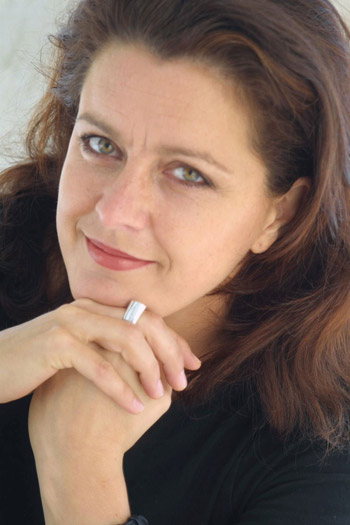
Anke Vondung
Mezzo-Soprano
Born in Speyer, Germany, mezzo soprano Anke Vondung began piano lessons when she was eight years old. Anke Vondung studied with Professor Rudolf Piernay at Musikhochschule Mannheim. In 1995 she made her debut at the Opernschule Mannheim as Nancy in Benjamin Britten's Albert Herring.
In 1996 and 1997 Anke Vondung won awards in such prestigious international competitions as the Franz Schubert and Modern Music Chamber Music Competitions, Mozart-Competition Würzburg, and Neue Stimmen. In 1998 she attended an international opera project of the European Opera Center, under the direction of Brigitte Fassbänder, in the role of Cecilio (Mozart's Lucio Silla) and she was the recipient of a scholarship from the Richard Wagner Association. In 1998 she received prizes at Robert Saar's Singing Competition in Bad Kissingen, at Hans Gabor Belvedere's Singing Competition in Vienna, and at the ARD International Music Competition in Munich. In 1999 she won the fist prize of the Mendelssohn-Bartholdy Competition and received a scholarship to Chicago's Ravinia Festival.
Anke Vondung was a member of the Tiroler Landestheater Innsbruck in Austria until the end of the 2001-02 season. From 2003 to 2005 season, she was a member of the Semperoper Dresden. In the 2000-01 season she appeared at Théâtre du Châtelet in Paris as Hänsel in a Hänsel und Gretel production. During the 2001-02 season she appeared for the first time at Bayerische Staatsoper Munich, and in 2002 at Salzburger Festspiele in Die Liebe der Danae by Richard Strauss. In the 2002-03 season appeared as Fyodor in a Boris Godunov production at Opéra Bastille in Paris, as Dorabella in Così fan tutte with Landestheater Salzburg for the Mozart-Festwochen Salzburg, and in several productions at Grand Théâtre de Gèneve. In 2003 she appeared in Die Ägyptische Helena by Richard Strauss at the Salzburger Festspiele. In 2006 she sang Dorabella at the Glyndebourne Opera Festival and Clairon (Richard Strauss's Capriccio) at Nederlandse Opera Amsterdam. In the 2006-07 season she also appeared as Octavian (Der Rosenkavalier) at Opéra Bastille and Deutsche Staatsoper Berlin.
In the 2007-08 season Anke Vondung appeared for the first time in Le nozze di Figaro and La clemenza di Tito at the Metropolitan Opera in New York. In 2008 she sang Cherubino (Le nozze di Figaro) at Munich State Opera and Octavian (Rosenkavalier) at Munich Opera Festival. The following year she sang at Munich State Opera (Così fan tutte) and appeared with the Boston Symphony Orchestra under the direction of James Levine. In the 2010-2011 season she was guest at the Staatsoper Dresden (Carmen, Capriccio), San Diego Opera (Rosenkavalier), in Montreal (Fricka in Das Rheingold led by Kent Nagano).
During the 2011/12 and 2012/13 seasons she appeared at the Staatsoper Dresden and at the Opera House Palermo. During the 2013-14 season, Anke sang the lead role of Dulcinea in San Diego Opera’s production of Jules Massenet’s opera Don Quixote with the world-famous bass Ferruccio Furlanetto in the title role.
Besides her engagements as an opera singer she received numerous invitations to appear with important orchestras in Europe and the Americas with distinguished conductors such as James Conlon, Edo de Waart, Helmuth Rilling, Philippe Herreweghe, James Levine, Armin Jordan, Manfred Honeck, Markus Stenz, Iván Fischer, Philippe Jordan, René Jacobs, Peter Schreier, Gerd Albrecht, Fabio Luisi, Marek Janowski, Kent Nagano, Howard Arman, Lothar Zagrossek, and Sir Roger Norrington.
-
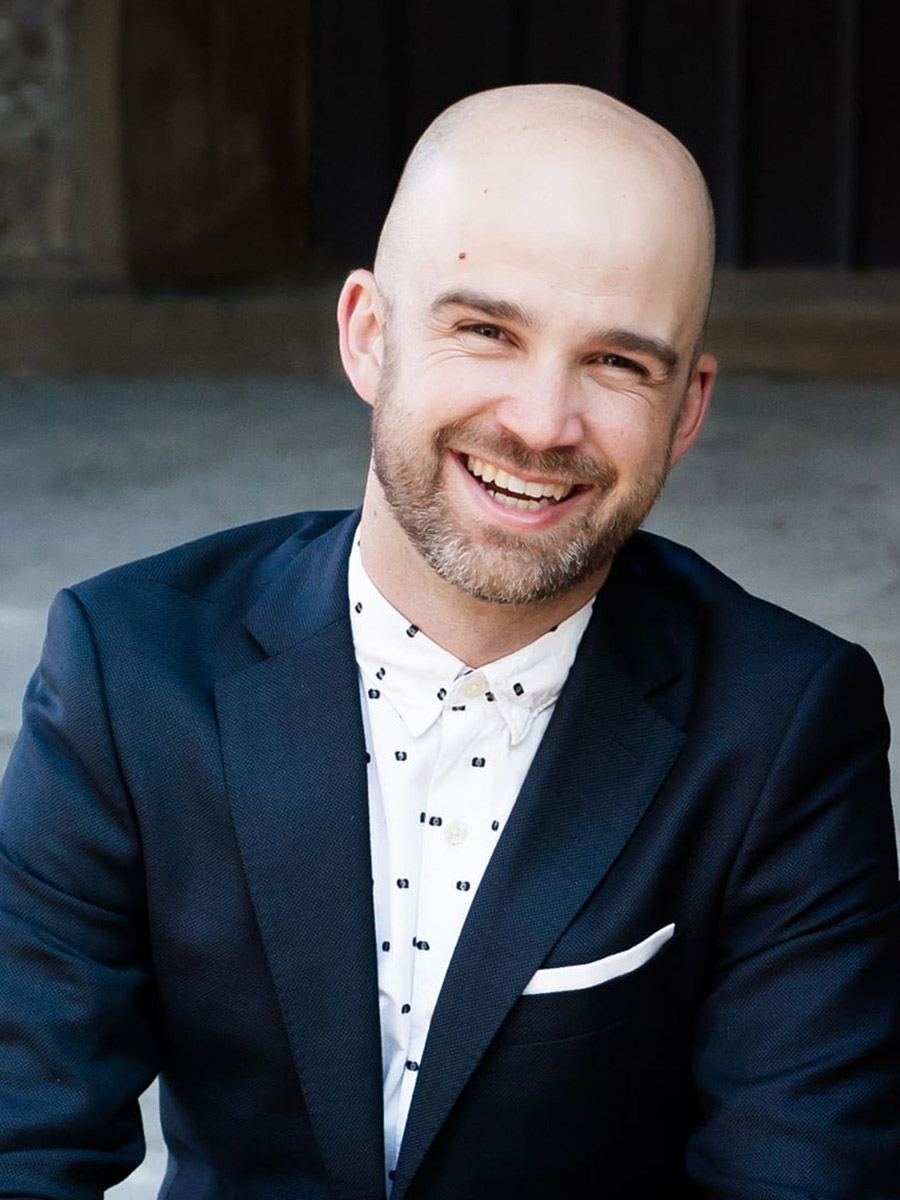
Zachary Wilder
Tenor
With a commanding vocal presence and a captivating musical finesse, American tenor Zachary Wilder emerges as an exemplary interpreter of 17th and 18th-century repertoires, spanning from Monteverdi to Mozart. His artistry has garnered demand from esteemed conductors and ensembles on both sides of the Atlantic, perfectly embodying the fervor of grand sacred masterworks and the opulence of operatic performances, with a widely acclaimed stage presence.
He now collaborates with a constellation of well known ensembles such as Pygmalion, Les Arts Florissants, L'Arpeggiata, Les Talens Lyriques, Le Concert d'Astrée, the Boston Early Music Festival, Bach Collegium Japan, the Handel & Haydn Society, Nederlandse Bach Vereniging, and Nederlands Kamerkoor. His associations with the latter two formations frequently culminate in extensive tours, notably as the Evangelist in Bach’s Christmas Oratorio under the baton of Christophe Rousset in 2022.
Beyond the confines of the beauties of early music, his collaborations with symphony orchestras such as the Royal Philharmonic Orchestra, the San Francisco Symphony Orchestra, and the Saint Louis Symphony Orchestra, allow him to tackle later repertoires. Notable performances include Vaughan-Williams' On Wenlock Edge and Britten's Nocturne with the Charlottesville Symphony Orchestra, and the role of Mark in Frank Zappa's 200 Motels, first at the Musica Festival in Strasbourg and later at the Philharmonie in Paris. Maintaining an ever-curious musical spirit, Zachary portrayed the Spirit of Light in The Tale of Genji at Tokyo's legendary Kabukiza Theater, under the direction of Ebizo Ichikawa.
Recent seasons have been punctuated by significant undertakings, including the expansive Monteverdi 450 tour led by Sir John Eliot Gardiner, Händel's Radamisto with Il Pomo d'Oro conducted by Francesco Corti, with whom a solid collaboration has been established, as evidenced by the August 2023 production of Purcell's The Fairy Queen at the Drottningholm Opera. He triumphantly interpreted the role of Erinda in the revival of Sartorio's L’Orfeo at the Opéra de Montpellier, directed by Philippe Jaroussky and staged by Benjamin Lazar. Noteworthy collaborations also encompass Zachary's portrayal of Basilio in Mozart's Le Nozze di Figaro alongside Raphaël Pichon as well as of Agenore in Mozart's Il Re Pastore at the Mozarteum in Salzburg, conducted by Christina Pluhar.
The 2024/2025 season highlights a harmonious blend of concerts and stage productions. Among the key performances are Le lacrime di Eros (role of Pastore) with the Pygmalion ensemble and Raphaël Pichon, directed by Romeo Castellucci at the Amsterdam Opera. He will also be featured in two tours dedicated to Monteverdi's Vespro della Beata Vergine: first with Pygmalion (Paris, Antwerp, Versailles), followed by I Gemelli (Amsterdam, Barcelona, Seville). Additionally, he will make notable appearances at the Gulbenkian Foundation in Lisbon, performing with the Foundation’s Orchestra and Choir under the direction of Martina Batič and Peter Dijkstra, for the Christmas Oratorio and Bach's Mass in B minor. Zachary will also revisit the role of Agenore in Il Re Pastore in Salzburg, celebrating the 250th anniversary of the work’s premiere.
His expansive discography encompasses over forty recordings for esteemed labels including Ricercar, CPO, Soli Deo Gloria, Harmonia mundi, Glossa, Atma, La Música and Aparté with the direction of luminaries such as William Christie, John Eliot Gardiner, Masaaki Suzuki, Christophe Rousset, and Raphaël Pichon. Notably, his special partnership with Ensemble I Gemelli has yielded exceptional recordings of Monteverdi's Orfeo and Il Ritorno d'Ulisse, alongside the critically acclaimed A Room of Mirrors, which gathers arias and duets from the Italian Seicento, and elicited enthusiastically rave reviews from the press. His recital album Eternità d'Amore for the label La Música with Josep M. Martí Duran was particularly well critically received.
Johann Sebastian Bach
The BBC’s Classical Music magazine writes that J.S. Bach’s Mass in B Minor was one of the “highest job applications” in the history of music. That is because, with the death of the Elector of Saxony in 1733, Bach composed the magnificent overture in the hope of getting into the good graces of his successor. The work was, in fact, written over 25 years, bringing together adaptations of some previous creations and new material. The title by which it is known today would only come much later and its full performance would only take place for the first time in 1859, two centuries after Bach’s death.
Sponsor Gulbenkian Music
The Calouste Gulbenkian Foundation reserves the right to collect and keep records of images, sounds and voice for the diffusion and preservation of the memory of its cultural and artistic activity. For further information, please contact us through the Information Request form.
